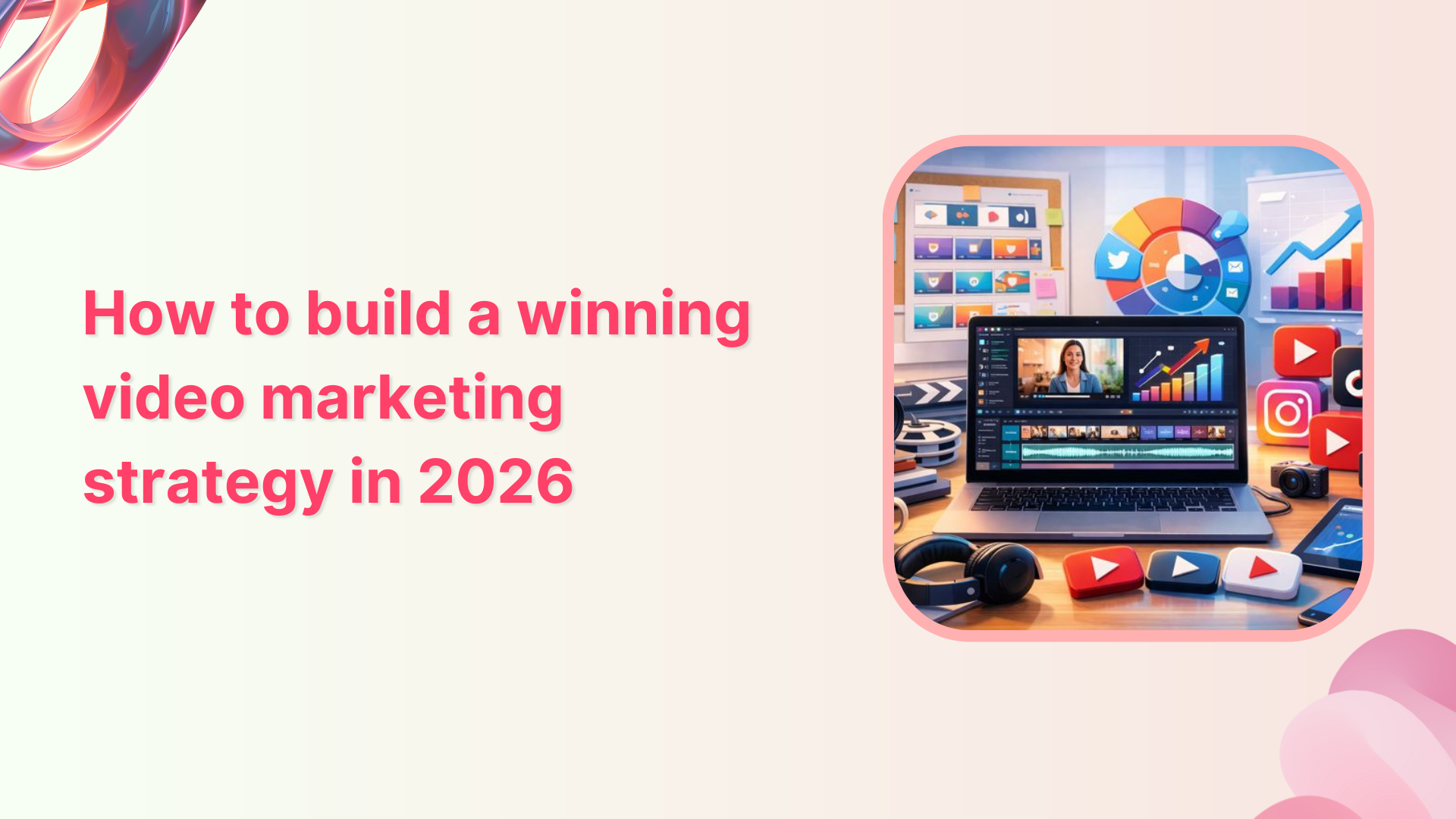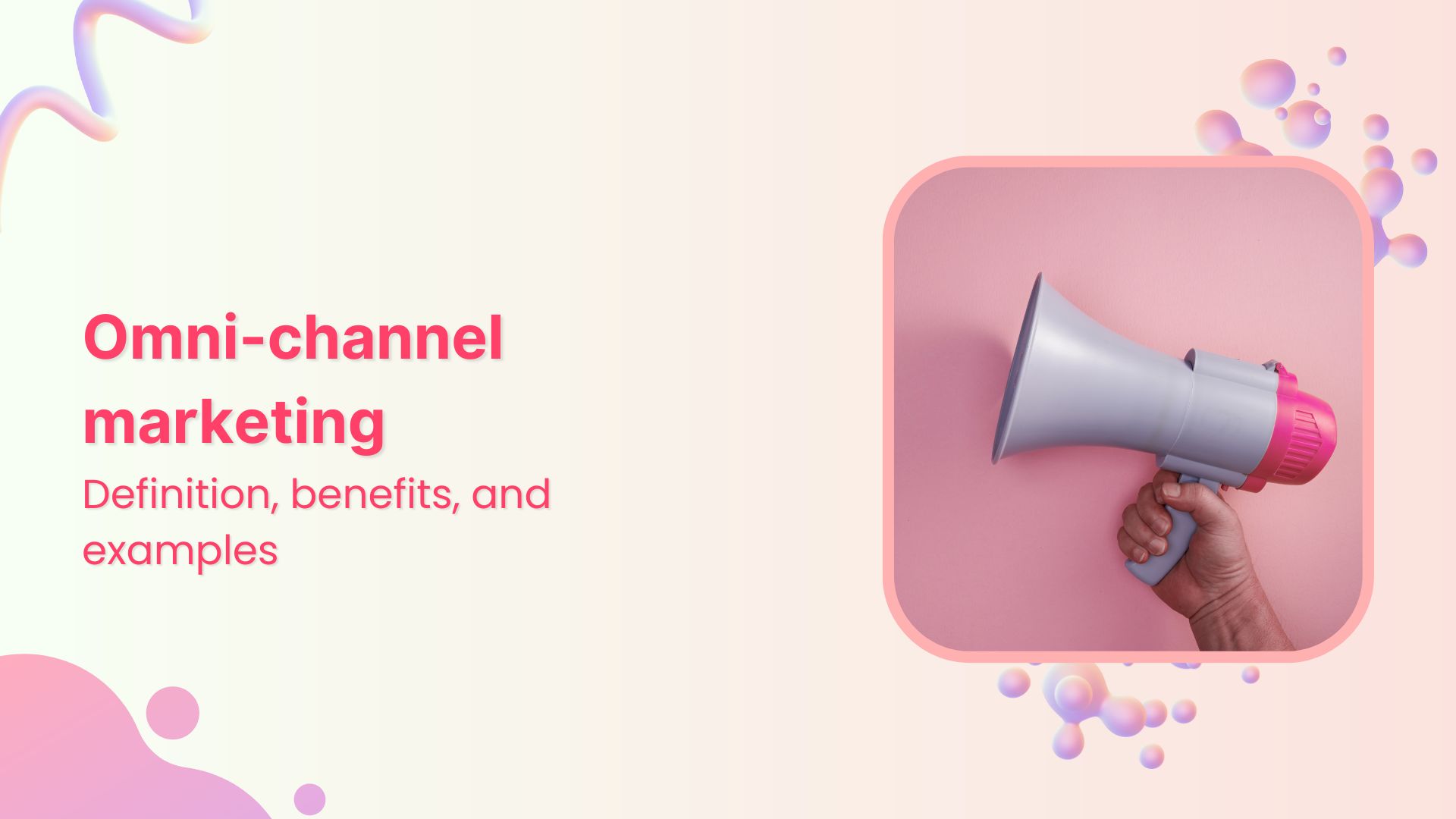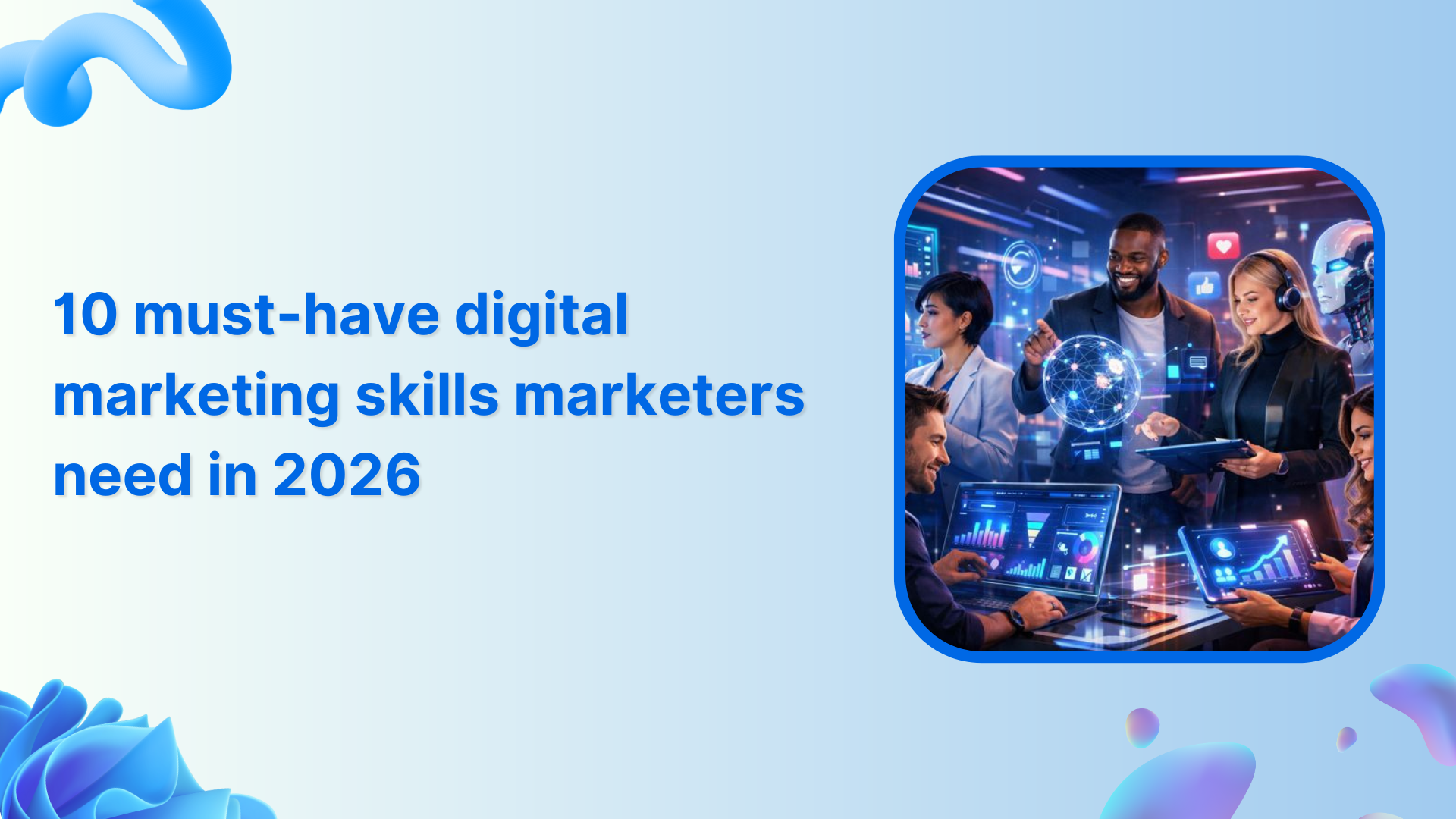Bulk-generate & schedule posts in seconds with Smart Scheduling. Try now!
Monetization
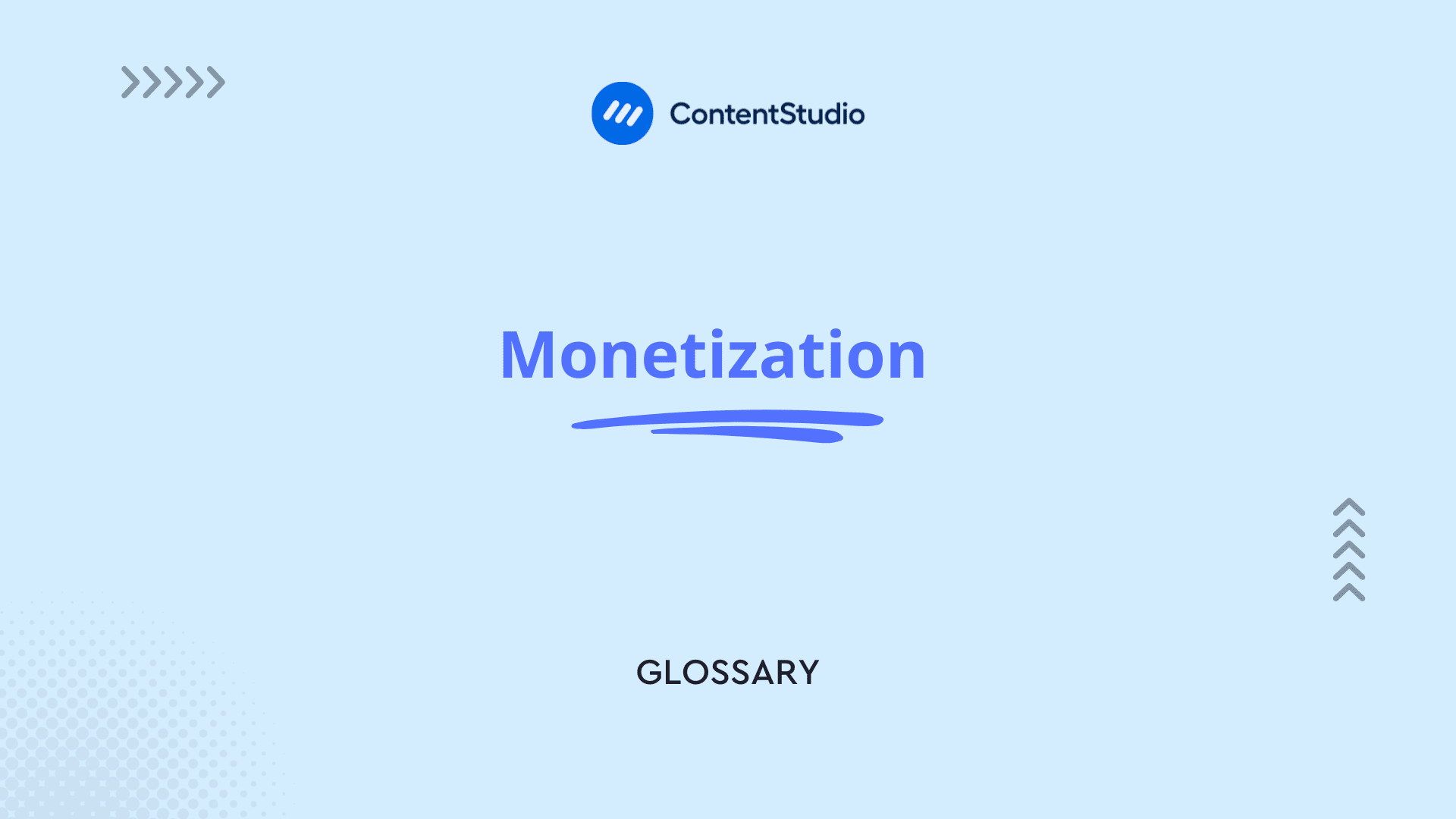
What is monetization?
Monetization refers to the process of generating revenue from a product, service, content, or platform.
In the digital marketing landscape, monetization involves converting user engagement, content value, or online presence into measurable financial returns.
For creators, businesses, and platform owners, effective monetization strategies are essential for sustainability and growth in an increasingly competitive digital ecosystem.
Types of digital monetization models
Digital monetization encompasses a variety of approaches, each suited to different platforms, audience types, and content formats.
Advertising-based monetization
Advertising remains one of the most common monetization methods across digital channels. Key advertising models include:
- Display advertising: Banner ads, pop-ups, and other visual advertisements placed on websites and apps
- Native advertising: Sponsored content that matches the form and function of the platform it appears on
- Video advertising: Pre-roll, mid-roll, and post-roll ads integrated into video content
- Sponsored content: Paid partnerships where creators produce content promoting a brand or product
For platforms with substantial traffic, advertising can generate significant revenue. Many social media sites use advertising as their primary monetization strategy.
Subscription models
Subscription-based monetization involves charging users a recurring fee for access to content, services, or premium features:
- Content subscriptions: Access to exclusive articles, videos, or other content
- Service subscriptions: Regular payment for ongoing services or platform access
- Freemium models: Basic features available for free, with premium capabilities requiring payment
Subscription approaches build predictable revenue streams and deeper relationships with users. Many social media management tools utilize subscription models to provide ongoing value to customers.
E-commerce and affiliate marketing
Many content creators and platforms monetize through product sales or commissions:
- Direct product sales: Selling physical or digital products to an audience
- Affiliate marketing: Earning commissions by promoting other companies' products
- Marketplace models: Facilitating transactions between buyers and sellers while taking a percentage
These approaches directly connect content to commerce, creating clear revenue paths. Platforms like Instagram and Pinterest have developed robust social commerce features to facilitate these monetization strategies.
User-generated contributions
Some platforms rely on voluntary financial support from their audience:
- Donations: One-time voluntary payments
- Tips: Small monetary gifts for specific content
- Crowdfunding: Collective funding from many individuals to support a creator or project
- Membership programs: Recurring support with potential perks or recognition
These models work particularly well for creators with highly engaged, passionate audiences who want to ensure the sustainability of the content they enjoy.
Social media monetization strategies
Social media platforms offer unique monetization opportunities for both the platforms themselves and the creators who use them.
Platform-specific monetization features
Major social networks have developed native monetization tools:
- Facebook: Fan subscriptions, in-stream ads, and branded content tools
- Instagram: Shopping features, branded content, and IGTV ads
- YouTube: Ad revenue sharing, channel memberships, and Super Chats
- TikTok: Creator Fund, branded effects, and livestream gifts
- X (Twitter): Super Follows, ticketed Spaces, and tipping
Understanding the monetization options on each platform is essential for social media marketing strategies that aim to generate direct revenue.
Creator economy monetization
The growing creator economy has expanded monetization opportunities beyond traditional channels:
- Influencer partnerships: Paid collaborations with brands for sponsored content
- Digital products: Courses, ebooks, templates, or other downloadable assets
- Virtual events: Ticketed online workshops, webinars, or performances
- Exclusive communities: Paid access to private groups or forums
These approaches allow creators to leverage their expertise and audience relationships. Tools like ContentStudio can help manage and optimize content across multiple monetized channels.
Video content monetization
Video has become a particularly lucrative content format for monetization:
- Ad revenue sharing: Earning a portion of advertising revenue placed on videos
- Brand sponsorships: Dedicated video content paid for by sponsors
- Product placements: Featuring products within video content for compensation
- Premium video content: Subscription-based or pay-per-view video offerings
Video monetization strategies vary across platforms, from YouTube's established program to emerging options on TikTok, Instagram Reels, and other platforms.
Monetization for different digital entities
Monetization strategies vary significantly based on the type of digital entity pursuing revenue.
Website and blog monetization
Content-focused websites typically monetize through:
- Programmatic advertising: Automated ad placement through networks like Google AdSense
- Direct ad sales: Selling ad space directly to relevant businesses
- Sponsored posts: Publishing paid content from sponsors
- Premium content: Gated content requiring payment or subscription
Effective content marketing strategies can build the audience and engagement necessary for successful website monetization.
App monetization
Mobile applications employ several revenue models:
- Paid downloads: One-time purchase to download the app
- In-app purchases: Optional items or features available for purchase
- Subscription access: Recurring payment for app usage
- Freemium models: Basic version free with paid premium options
- In-app advertising: Displaying ads within a free application
The right app monetization strategy depends on the app's purpose, audience, and competitive landscape.
Social media account monetization
Individual and brand accounts on social platforms monetize through:
- Sponsored posts: Payment for featuring products or services
- Affiliate marketing: Earning commissions through trackable links
- Product sales: Direct selling of merchandise or digital goods
- Funnel to services: Using social presence to attract clients for services
For businesses managing multiple social channels, tools like ContentStudio's social media management platform can streamline monetization efforts across platforms.
Building a successful monetization strategy
Effective monetization requires strategic planning and ongoing optimization.
Audience understanding
The foundation of successful monetization is deep audience knowledge:
- Demographic research: Understanding who your audience is
- Behavioral analysis: Learning how they interact with your content
- Preference identification: Discovering what they value most
- Willingness to pay assessment: Determining what they'll spend money on
Detailed social media analytics can provide valuable insights into audience characteristics that inform monetization decisions.
Content-to-monetization alignment
The most sustainable monetization approaches align with content type and audience expectations:
- Value-based monetization: Charging for genuinely premium, valuable content
- Experience preservation: Ensuring monetization doesn't degrade user experience
- Authentic integration: Incorporating sponsors or products in natural, relevant ways
- Balanced approach: Mixing monetized and non-monetized content appropriately
Creating a content calendar that strategically incorporates monetized content can help maintain this balance.
Platform diversification
Relying on a single monetization method or platform creates vulnerability:
- Multi-channel approach: Establishing presence across several platforms
- Revenue stream variety: Implementing multiple monetization methods
- Owned platform development: Building direct audience relationships through email or websites
- Emerging platform experimentation: Testing new platforms early
Tools like ContentStudio can help manage content across multiple platforms, supporting diversification efforts.
Testing and optimization
Monetization requires continuous refinement:
- A/B testing: Comparing different monetization approaches
- Pricing experimentation: Testing various price points for optimal conversion
- Format variation: Trying different content formats for monetization
- Placement testing: Finding the optimal positioning for monetization elements
Regular review of social media KPIs can help evaluate the success of different monetization experiments.
Monetization challenges and considerations
Digital monetization presents several challenges that creators and platforms must navigate.
Audience resistance
User pushback against monetization is common:
- Ad fatigue: Growing weariness with excessive advertising
- Subscription fatigue: Reluctance to add another recurring payment
- Value perception gaps: Disconnect between creator valuation and audience willingness to pay
- Transparency concerns: Questions about sponsored content disclosure
Clear communication about the value exchange can help overcome these challenges.
Platform dependencies
Reliance on third-party platforms creates inherent risks:
- Algorithm changes: Platform updates that affect content visibility and monetization
- Revenue share adjustments: Changes to how platforms split revenue with creators
- Feature deprecation: Platforms removing or changing monetization features
- Platform viability: Risk of platforms declining in popularity or shutting down
These risks highlight the importance of multi-platform strategies that don't rely exclusively on any single channel.
Ethical considerations
Monetization raises important ethical questions:
- Content integrity: Maintaining honest content despite financial incentives
- Audience trust preservation: Ensuring monetization doesn't erode trust
- Accessibility concerns: Balancing paywalled content with accessible information
- Data privacy issues: Respecting user data when using it for monetization
Ethical monetization builds sustainable audience relationships rather than maximizing short-term gains.
Future trends in digital monetization
The monetization landscape continues to evolve with several emerging trends.
Creator-centric monetization tools
Platforms are developing more creator-focused revenue options:
- Direct support features: In-platform tipping and support mechanisms
- Creator funds: Platform-established pools to pay creators
- Collaboration marketplaces: Streamlined creator-brand connection tools
- Content monetization APIs: Tools for developers to add monetization features
These developments reflect the growing importance of the creator economy in digital monetization.
Blockchain and cryptocurrency integration
Blockchain technology is creating new monetization possibilities:
- NFT content: Non-fungible tokens representing ownership of digital content
- Cryptocurrency tipping: Direct support using digital currencies
- Token-based communities: Access determined by ownership of specific tokens
- Decentralized monetization: Platform-independent revenue generation
While still evolving, these approaches may offer greater creator control over monetization.
Hybrid monetization models
Increasingly, successful monetization combines multiple approaches:
- Tiered access models: Different content or features at various price points
- Bundle offerings: Combining content, products, services, and experiences
- Community-commerce integration: Merging community building with monetization
- Value-exchange options: Allowing users to pay with money, time, or data
These sophisticated approaches recognize different audience segments' preferences and capabilities.
By understanding the full spectrum of monetization options and strategically implementing the most appropriate ones for their content and audience, creators and businesses can build sustainable revenue streams across their digital presence.
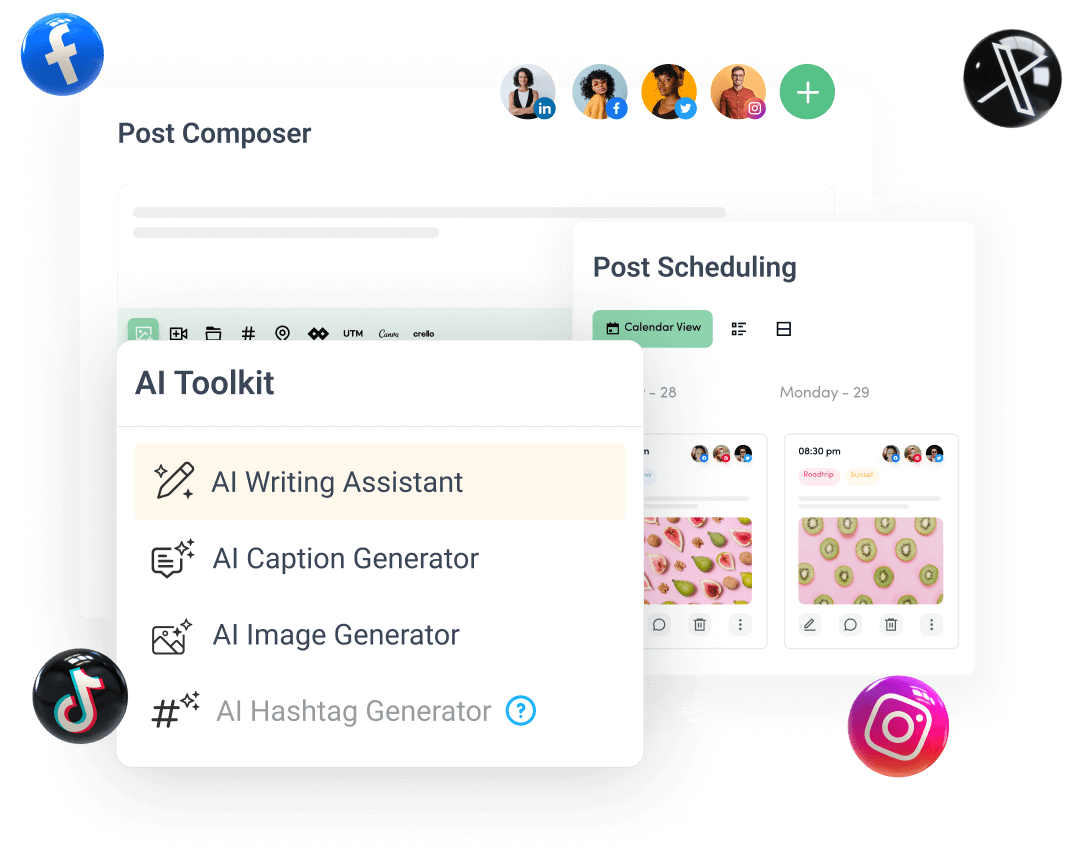
Create, plan, schedule, and publish posts on all social media networks
Recommended for you


Powerful social media management software
14-day free trial - No credit card required.
